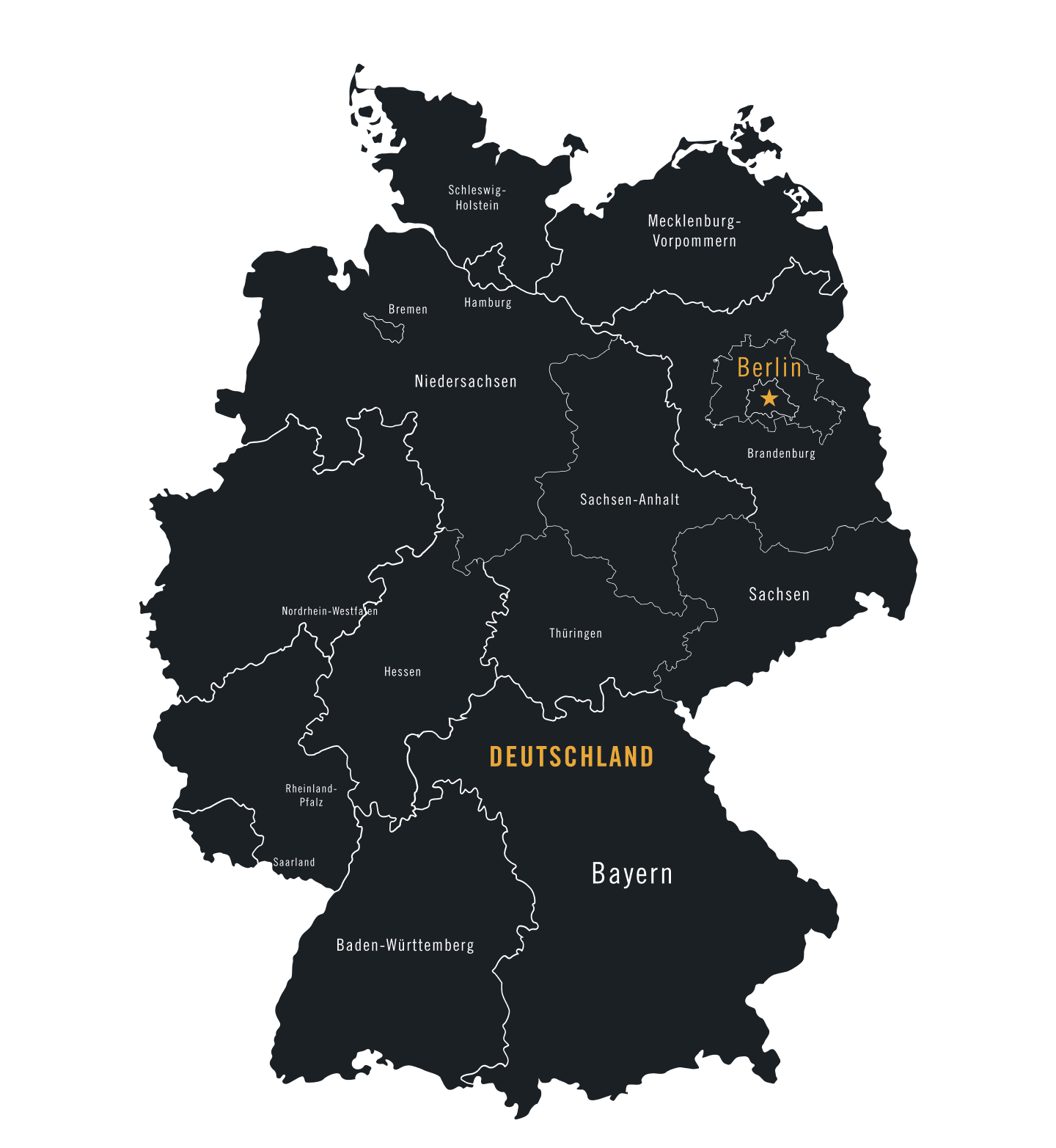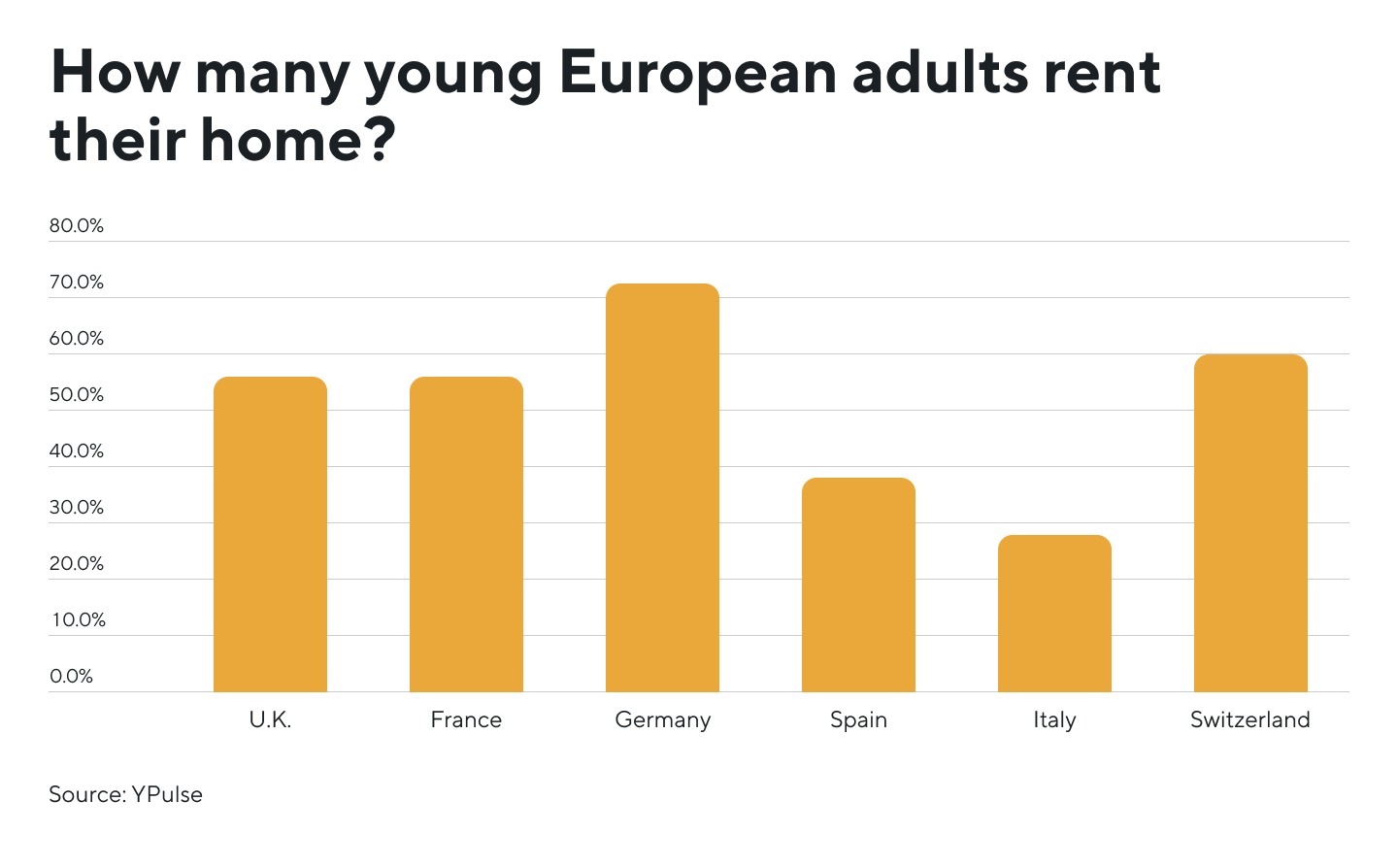Berlin’s real estate market is facing an acute rental house crisis characterized by surging rents, escalating demand, and an inadequate shortage of housing supply. This crisis is not just posing challenges for residents in search of affordable accommodations; it is also affecting the city’s socio-economic situation. Consequently, there is a need for innovative solutions that utilize the latest technology.
PropTech, or property technology, startups are uniquely positioned to disrupt the traditional rental housing market by leveraging technology to streamline processes, increase transparency, and make renting more accessible and efficient. But first, let’s get valuable insights to the problem core to understand better what software startup idea we can develop as an online business to help alleviate the real estate crisis in Berlin and create a more sustainable and inclusive rental market with affordable rent.

Challenge #1. Housing Prices Are Almost Unaffordable
Germany stands out in Europe as a country of renters. In other European nations, the situation is also alarming. 60% of Swiss rent, compared to 50% of French and approximately 30% of Italians. In Germany, this figure is significantly higher, more than 70%. The disparity is even more pronounced in major cities.

People in Germany believe that rent housing affordability should be between €6.50 and €7.50 per square meter. But these days, you can’t even find an apartment on the edges of Berlin for that much money. A square meter costs:
Source: GlobalPropertyGuide
For example, let’s take a typical rent offer for an apartment in a Berlin suburb to the east. The apartment is on the sixth floor and doesn’t have a lift. The ad says that the people who want to rent should be “talented in handicrafts” because the house needs to be fixed up.
Berlin’s 2024 population is now estimated at 3,576,873. The number of foreigners living in Berlin almost doubled between 2011 and 2023; now, they make up 24% of the city’s people.

There is a foreign-born population in Berlin today, with countries of birth that include:
Turkey: 101,000 (the largest Turkish community outside Turkey)
Poland: 47,000
Russia: 17,500
Bulgaria: 16,000
France: 15,000
United States: 14,500
Vietnam: 14,000
United Kingdom: 11,500
Romania: 9,000
Ukraine: 9,000
Source: Worldpopulationreview
- TR
- 101,000
- PL
- 47,000
- RU
- 17,500
- BG
- 16,000
- FR
- 15,000
- US
- 14,500
- VN
- 14,000
- UK
- 11,500
- RO
- 9,000
- UA
- 9,000
Challenge #2. Housing Market in Berlin Lacks Housing Supply
The city now has to deal with another problem: the lack of housing supply has made it harder for refugees and newcomers to find places to stay in Berlin. The war between Russia and Ukraine has sent many refugees and people looking for protection to Western European countries, including Germany.
But Berlin’s already severe housing shortage for locals has made it even worse for refugees to find a place to stay, forcing many experiencing homelessness. The rents, gas, and energy prices have also increased, which has cut down on the number of private offers from Berliners to take refugees into their homes.
People who live in Berlin are now feeling the effects of rental house crisis due to high demand for rental property and the housing shortage, as are refugees and asylum seekers who are coming to or already living in Berlin.
Or if we take students, as there are many of them in Berlin, the time it takes for students to find rooms or apartments in Berlin can be months. That means sleeping on couches, living in hostels, or moving from one short-term sublet to another. The rent crisis also concerns young families, who find it hard to find a bigger place once they have one or two kids and can’t fit in their flats anymore. Even if they find something, it’s so pricey that they stay in their old place.
Challenge #3. Find an Innovative Business Idea for PropTech Industry
Although affordable housing is good for society, why should real estate companies care about it and seek an innovative business solution or startup idea to solve it?
The mission of any PropTech solution is to help tenants or buyers find what they want, cut their rental expenses, or support property investing. It’s like matching the interests of landlords and tenants, sellers and buyers, offering both sides beneficial results.
PropTech solutions help real estate developers streamline their development processes, reducing time to market by using, for example, 3D modeling tools or making informed decisions using artificial intelligence and data science.
Proptech platforms can help individuals and small investors participate in real estate growth by enabling new ways to finance construction businesses, like crowdfunding and blockchain-based investments. This could make more money available for projects that build affordable homes.
Online platforms make it easier for people who want to rent or buy a home to find affordable housing prices as they make landlords compete with each other, which would balance the tendency to rent increase, offer social housing, or improve accommodation conditions.
Proptech’s innovative solutions can also help houses use less energy. When homes use less energy, bills for things like heating and power go down, which is good for those living there. Proptech can offer smart systems and gadgets for homes that help people control and save energy. This helps in the short term and keeps homes cheap for a long time because you don’t have to spend as much on energy.

Potential PropTech Software Business Ideas
It’s a fact that the real estate business follows the traditional path and is resistant to change. But brilliant business ideas are beginning to change that on the global level. PropTech is essential for the real estate business because it can change business models, encourage rental developments, improve economic conditions, and overcome rental house crisis. That knowledge could also improve customer outcomes. These ideas for PropTech startups could help solve the problem of lack of rental housing:
1. Rental Match Marketplace: This marketplace may show people rental prices in Berlin’s different areas and neighborhoods in real time. With the feature of seeing how long it takes to get to Berlin from the chosen region. The marketplace could help find a sublet or a roommate. This PropTech platform could help potential customers, renters, and landlords determine price and market trends and make smart choices.
Examples: Zillow (the USA marketplace), Homegate Switzerland.
2. Mobile App for Affordable Homes: You can create an app that could help low-income people and families find affordable homes in Berlin. The platform could combine listings from various sources, such as other real estate websites, and offer filters for price range, area, and features. It might also offer virtual tours of properties to save time and money for both renters and owners and to bring in renters from other countries who might not be able to visit properties in person.
Examples: Immoscout24 (German mobile app).
3. Tenant-Landlord Platform: This kind of platform can make it easy for renters and landlords to communicate with each other. Tenants could leave their inquiries as to the preferable price, condition of living, desirable region, or neighborhood. Ultimately, this could help clear up problems faster and avoid mistakes, making the rental experience better for everyone. It may offer convenient features to match the interests of both sides:
Messaging system: Tenants and landlords can easily communicate with each other through a secure messaging system on the platform. The benefits are apparent: quick responses and records of all communications for reference.
Maintenance requests: Tenants can submit them directly through the platform so landlords can send feedback immediately. Landlords can also provide updates on the request status through the platform.
Rent payments: The platform may offer the option to make rent payments, providing a convenient and secure way to ensure payments are made on time. Landlords can track and manage rent payments, send reminders for late payments if necessary, and share and sign documents electronically through the platform, eliminating the need for physical paperwork.
Feedback and reviews: Tenants can provide feedback and ratings on their rental experience, helping future tenants make informed decisions. Landlords can use this feedback to improve their rental properties and services.
Examples: LoopNet (the USA mobile app).
LaSoft Real Estate Portfolio Case
Casadesk is an online platform in Dutch and English that makes things easier for rental agencies. It combines different technologies into a single web-based system to make renting out properties easy and smooth.
Features:
Final insights
All in all, startup ideas align with PropTech’s mission to help with
By leveraging technology and innovative solutions, these platforms have the potential to address the rental house crisis challenges of affordability, limited rental supply, and communication barriers in Berlin’s housing market.



